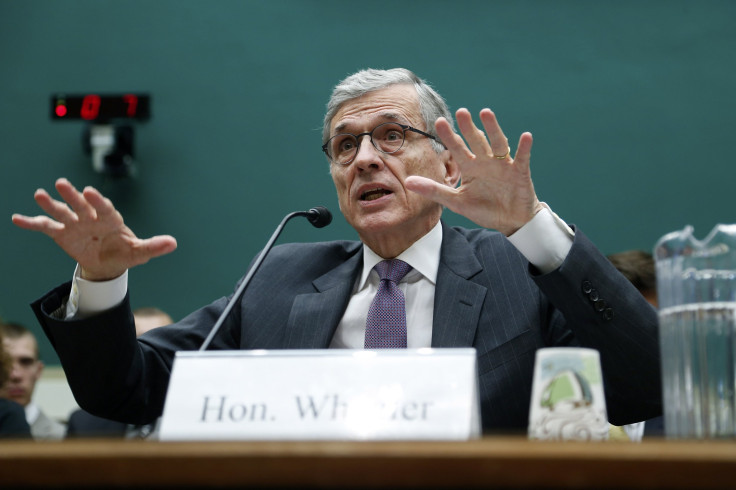GOP Senate Could Sway Debate On Net Neutrality As FCC Floats 'Hybrid' Plan

Republican congressional candidates have spent months promising that if the GOP takes control of the Senate while keeping the House of Representatives it will mean big changes for immigration policy, taxes and other key issues. Another hot-button topic that could be affected is Net neutrality.
Net neutrality is a broadly defined concept that boils down to the principle that Internet Service Providers like Comcast and Verizon Wireless should accommodate all traffic equally. Proponents say Net neutrality guarantees a level playing field for all businesses on the information superhighway, large and small, and ensures that consumers won't have to pay more for content-heavy services like Netflix and Hulu. Opponents say carriers should be free to impose higher rates on users that consume the most bandwidth.
The issue has been at the center of a contentious debate since January, when a federal judge sided with Verizon over the Federal Communications Commission, ruling that the FCC must vacate its current rules on Net neutrality and come up with a new plan.
A Republican-controlled Senate could help sway the issue toward carriers, but only under a few, very specific circumstances. The policy decision rests in the hands of the FCC, which is led by five commissioners (currently three Democrats and two Republicans) who are each selected by the president and confirmed by the Senate for five-year terms. Chairman Tom Wheeler was sworn in in November 2013, with his term expiring in 2018. The other commissioner’s terms expire in 2018, 2017, 2016 and 2018.
With his own term expiring at the beginning of 2017, President Barack Obama will appoint no more than one more FCC commissioner. Whoever next wins the White House would appoint the rest. A GOP-run Senate could block Obama's or a future Democratic president's nominations and hold out for nominees who favor a freer market. The Republican-controlled House passed a Resolution of Disapproval after the FCC passed its first set of open Internet rules in 2010. The resolution asserted that the FCC shouldn’t have any say in the issue.
Blocking an executive appointment has plenty of recent precedents. Southern Democrats in the current Senate have lined up with Republicans to thwart the president's selection of Vivek Murthy for surgeon general due to his stance on gun violence, for example.
FCC leadership has yet to publicly announce any Net neutrality timeline, but the midterm elections are taking place less than a week after the Wall Street Journal reported that the commission is considering a “hybrid” plan to resolve the net neutrality debate.
Rules posited by Wheeler would reclassify broadband, splitting it into a retail section (which connects ISPs and consumers directly) and a back-end section (which would link website and video companies’ servers directly with ISP servers).
“The FCC would then classify the back-end service as a common carrier, giving the agency the ability to police any deals between content companies and broadband providers,” the Journal reported. The retail side would be classified as information service providers, and would be under less strict regulation.
The reaction to the hybrid plan has experts complaining that the FCC, in trying to satisfy everyone, satisfies no one. “Such an untested, too-clever-by-half approach is bad law and a bad idea,” Free Press Chief Executive Officer Craig Aaron said in a statement to Reuters. “No matter how you dress it up, any rules that don’t clearly restore the agency’s authority and prevent specialized fast lanes and paid prioritization aren’t real net neutrality.”
© Copyright IBTimes 2024. All rights reserved.




















